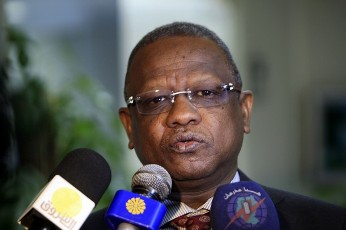Sudanese security services wants ban imposed on several opposition parties
February 5, 2013 (KHARTOUM) – Sudan’s National Intelligence and Security Services (NISS) sent a letter to the Political Parties Affairs Council (PPAC) calling for banning several political parties that have had its representatives sign the New Dawn charter in Uganda last month.

SRF is a coalition between several rebel groups fighting the Sudanese army in Darfur, South Kordofan and Blue Nile.
Al-Moula said that the SRF is targeting civilians and villages in these states causing heavy losses among ordinary citizens and government forces.
The spy chief said that New Dawn charter contains language calling for toppling the government through civil and military means thus violating 2005 Interim Constitution, Criminal Code and Political Parties Act.
The letter which was marked as ‘Top Secret’ and sent to the concerned parties urged PPAC to invoke article 19(2) of the Political Parties Act which pertains to suspension, banning and dissolution of parties.
The PPAC Legal Counsel sent a letter to the four asking them to respond within a week and explain their link to the individuals who signed the charter on their behalf.
The Political Secretary of the PCP Kamal Omer blasted PPAC describing it as “miserable” and lacking impartiality as it is muted when opposition figures are detained. He said the NISS letter is a prelude to indefinitely suspending the activities of opposition parties.
Omer said this part of an intimidation campaign by the government against New Dawn charter signatories.
The New Dawn charter which aggravated the ruling National Congress Party (NCP) calls for toppling the regime and preventing the exploitation of religion in politics. The latter was interpreted by the Sudanese government to mean a call for establishing a secular state.
The NUP, PCP, and SCP however later made statements distancing themselves from the document.
The Sudanese government launched a fierce media campaign against the deal and detained some of the parties’ representatives who attended the signing upon their return to Khartoum. Some officials even threatened to ban and prosecute all parties that joined the agreement unless they officially dissociate themselves from it.
(ST)
